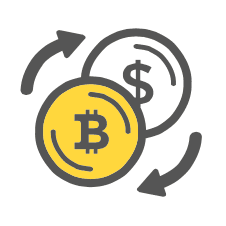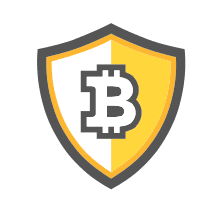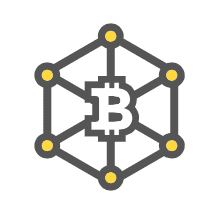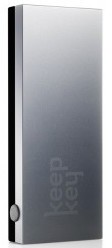How to Sell Bitcoin
This website tells you everything you need to know about how to buy bitcoin and why to buy bitcoin. What about the other side of the coin; how to sell bitcoin? The exchanges you’ll discover through this site are the obvious answer but there are other, sometimes better, methods. Even more important than the particular method of sale, deciding the proper asking price for your bitcoins ensures a profitable and successful exchange. This guide will cover all these topics in detail.
- How to Sell Bitcoin Online
- Selling Bitcoins for Cash
- How to Sell Bitcoin in Specific Places Round the World
- Setting your Price when Selling Bitcoin
How to Sell Bitcoin Online
There are 2 major online methods to sell Bitcoins for USD or any other type of fiat currency:
Selling Bitcoin on Centralized Exchanges
This is often the most convenient option. The more sophisticated online exchanges offer advanced trading interfaces which allow the placement of complex order types (such as trailing stop-losses). Most exchanges require some form of documentation; this requirement becomes unavoidable when withdrawing fiat to a bank account. However, on certain exchanges (such as Bitfinex), you may deposit and withdraw bitcoins without submitting personally identifying information. This allows you to sell for US Dollars when BTC is expensive then wait for price to cheapen before repurchasing and withdrawing a greater amount of Bitcoin, all without identifying yourself.
Leaving bitcoins or fiat in the care of any exchange unavoidably exposes you to custodial risk. The history of Bitcoin is littered with examples of exchanges which failed or absconded with client funds, the most famous being Mt. Gox, and the convenience of any centralised exchange must be weighed against such risks. Due to widespread and substantial losses incurred through trusting exchanges to hold funds, a cautionary saying has developed:“if you don’t control the private key, you don’t own the bitcoin.”
To allay client fears, several exchanges now offer cryptographic proof of Bitcoin storage as well as regular external audits of fiat accounts. Whenever possible, you should select an exchange which undertakes such measures. It’s never advisable to trust a third-party with significant wealth however; Bitcoin’s security is optimal when users hold their own money. Therefore, use such services only for trading purposes and never for wealth storage.
Selling Bitcoins on Decentralised Exchanges
Decentralised exchanges are services which facilitate direct trading between individuals. Such exchanges usually advertise buy and sell offers (also known as bids and asks, respectively) so that trades can be arranged between individuals. Such exchanges also escrow trades and offer additional services to improve trade security, such as reputation systems for rating trading partners. Reputation stats are helpful when assessing a new trading partner but should never be considered a substitute to established security measures, as reputation systems can be gamed in various ways.
Further advantages of decentralised exchanges are their minimal fees and low or absent personal information requirements. In some cases, all that’s required on the exchange side to place a sell order is your email address. Not having to submit exhaustive documentation makes registration much faster and trading more private.
From the seller’s perspective, decentralised exchanges function as escrow agents, which is to say a trusted parties which receive and hold the bitcoins you’re selling until the sale is finalised. When you confirm receipt of your buyer’s payment, either to your bank account if trading online or within your possession if trading face-to-face, you signal the exchange to release the bitcoins to the buyer. This protects both sides of the trade, although physical security measures may be appropriate when trading face-to-face.
The following decentralised exchanges are recommended for users in almost all countries around the world:
LocalBitcoins
Perhaps the most well-known decentralised exchange, LocalBitcoins facilitates both online and in-person trades. For selling Bitcoin online, up to 70 different payment methods may be requested (depending on your location), including traditional options such as bank transfer, PayPal, Western Union and so on.
BitQuick
BitQuick is also considered to be fairly decentralised; this service escrows the seller’s bitcoins until the buyer’s in-bank deposit (to the seller’s account) is confirmed by the bank.
#Bitcoin-OTC
This Internet Relay Chat channel on the popular Freenode server is another decentralised online trade venue, suitable for those familiar with IRC and PGP/GPG encryption. There is a Web of Trust reputation and authentication system, which should be considered mandatory. This method is suitable to selling large amounts of Bitcoin, as per this guide.
Selling Bitcoins for Cash
Services like LocalBitcoins allow you to arrange in-person trades for cash. A secure location, such as a bank or police station lobby, is recommended. Also recommended is Mycelium Local Trader, a smartphone app which facilitates in-person trades.
If you intend to do many such cash trades, you might want to invest in an ultra-violet counterfeit bill detector. Also, if your buyer indicates any intention of using purchased bitcoins for illegal activities, cancel the trade immediately.
Private Sale
For individuals who know and trust each other, such as family, friends and business colleagues, there’s no compelling reason to use any go-between service. The private sale method has several advantages; no fees, highest anonymity and convenience and, depending on the level of trust and familiarity, the highest security.
A good way to meet potential buyers for private sale purposes is to attend Bitcoin meetings or conferences in your area. Searching social media for local Bitcoin groups may also serve to acquaint you with trustworthy trading partners.
This method is also quite suitable for selling bitcoins online.
Bitcoin ATMs
Certain Bitcoin ATMs around the world enable you to sell as well as buy bitcoins. Check out the Coin ATM Radar site for their locations. To list only ATMs which buy Bitcoin, ensure that the checkbox marked “crypto -> fiat” is ticked and disable the “fiat -> crypto” box.
Clicking the location markers provides detail on specific ATMs, including basic information such as address, operating hours, fees, limits and the type of ATM. The “read more ->” link should provide contact details for the ATM’s owner should you require any further information. It’s best to enquire in advance as to what form of identification is required to use a Bitcoin ATM; some have rather invasive information requirements, such as fingerprint or ID book scans.
How to Sell Bitcoin in Specific Places Round the World
To view all the available sale venues in your location, obviously excluding the private sale method, consult the Buy Bitcoin Worldwide “Find a Bitcoin Exchange” page.
Decentralised exchanges such as Mycelium Local Trader, LocalBitcoins and #Bitcoin-OTC are available (almost) globally. Additionally, BitQuick covers North America, Europe and several Asian nations. Volume on these exchanges is dependent upon the number of individuals in each region interested in trading Bitcoin. Buyers may be scarce in small countries and / or those with low levels of internet penetration.
Larger exchanges, such as Coinbase, span several countries or entire regions. Smaller, local exchanges exist in most nations with a significant Bitcoin user-base.
Here are some specific recommendations for the English-speaking world:
Sell Bitcoins in the United States
Coinbase and Circle are both prominent and feature-rich exchanges which allow you to sell Bitcoins for USD. Gemini is a relatively new exchange which may be a good fit for major sales as they cater to institutional clients. These exchanges focus on regulatory compliance and making their user experience as seamless as possible.
Bitfinex and Kraken are two more popular exchanges which cater to Americans. Both have very high volume and advanced trading features. Ensure that you read the respective documentation for all these exchanges for further information on trading limits and terms.
All major decentralised services are available in the US, although LocalBitcoins and BitQuick don’t operate in the state of New York due to the BitLicense legislation.
Sell Bitcoins in Canada
The big American exchanges, Coinbase and Kraken, are also available in Canada for purposes of selling Bitcoin for Canadian dollars. Canada has many of its own exchanges, large and small; Quadriga CX is recommended for its low fees and advanced trading platform.
All major decentralised services are available in Canada.
Sell Bitcoins in Europe
Coinbase, Bitfinex, Kraken and Bitstamp are some of the biggest exchanges servicing Europe.
Note that LocalBitcoins is not available within Germany due to legal restrictions; Bitcoin.de is recommended as an alternative.
Sell Bitcoin in the UK
UK-based Bitcoin sellers have extensive options when it comes to exchanges. Coinbase,Bitfinex, Kraken and Bitstamp are all represented in the UK.
The major decentralised exchanges are available in the United Kingdom, as well as the UK-only, peer-to-peer marketplace, BitBargain.
Sell Bitcoins in Australia
The major global exchanges are absent from Australia. CoinCorner, which also services Europe, is a recommended option. Also recommended are Buy-aBitcoin and CoinJar.
The major decentralised exchanges operate within Australia, with the exception of BitQuick.
Setting your Price when Selling Bitcoin
If you have the luxury of time, consider your sale price carefully. The closer to the current spot Bitcoin price, the quicker your coins will sell. However, the desire to realise immediate profit should be balanced against Bitcoin’s upside risk, or the chance that price rises in future. Unless some catastrophe befalls Bitcoin, upside risk will remain high over the longer term, due to both the technology’s tremendous potential and the fiat system’s unsustainability.
Setting too low a price may lead to regret over lost profits but setting too high a price may mean nobody takes your offer. Unless you have some urgent need to liquidate your position, it’s better to err on the side of high pricing. You can always reduce your price if nobody takes your initial offer within a reasonable timeframe.
When deciding your price-point, factor in the following market information:
Price
Always plan your actions in the market with reference to a chart showing at least the two most important factors: price over time.
Technical Analysis (TA) is the study of price and volume over time. This BabyPips guide, although specific to Forex, is highly recommended as an introduction to TA.
If Bitcoin price is rising on strong volume, it may be wise to wait for a confirmed price reversal before selling. As Bitcoin trades 24-7 and humans need to sleep and occasionally do things unrelated to Bitcoin, setting a trailing stop-loss (available through exchanges with more advanced trading features) allows you to automatically lock-in profit and catch any likely reversals. A standard stop-loss, set at a suitable price level and manually updated as price rises, will also serve.
Sentiment
This guide discusses the factors which influence Bitcoin’s price. To briefly summarise market sentiment; if public interest in Bitcoin (as measured by search engine request) is increasing alongside positive media mentions, price may be expected to rise to a euphoric peak. Studying such historical cycles will help with timing your sale in a bull market.
Categories















